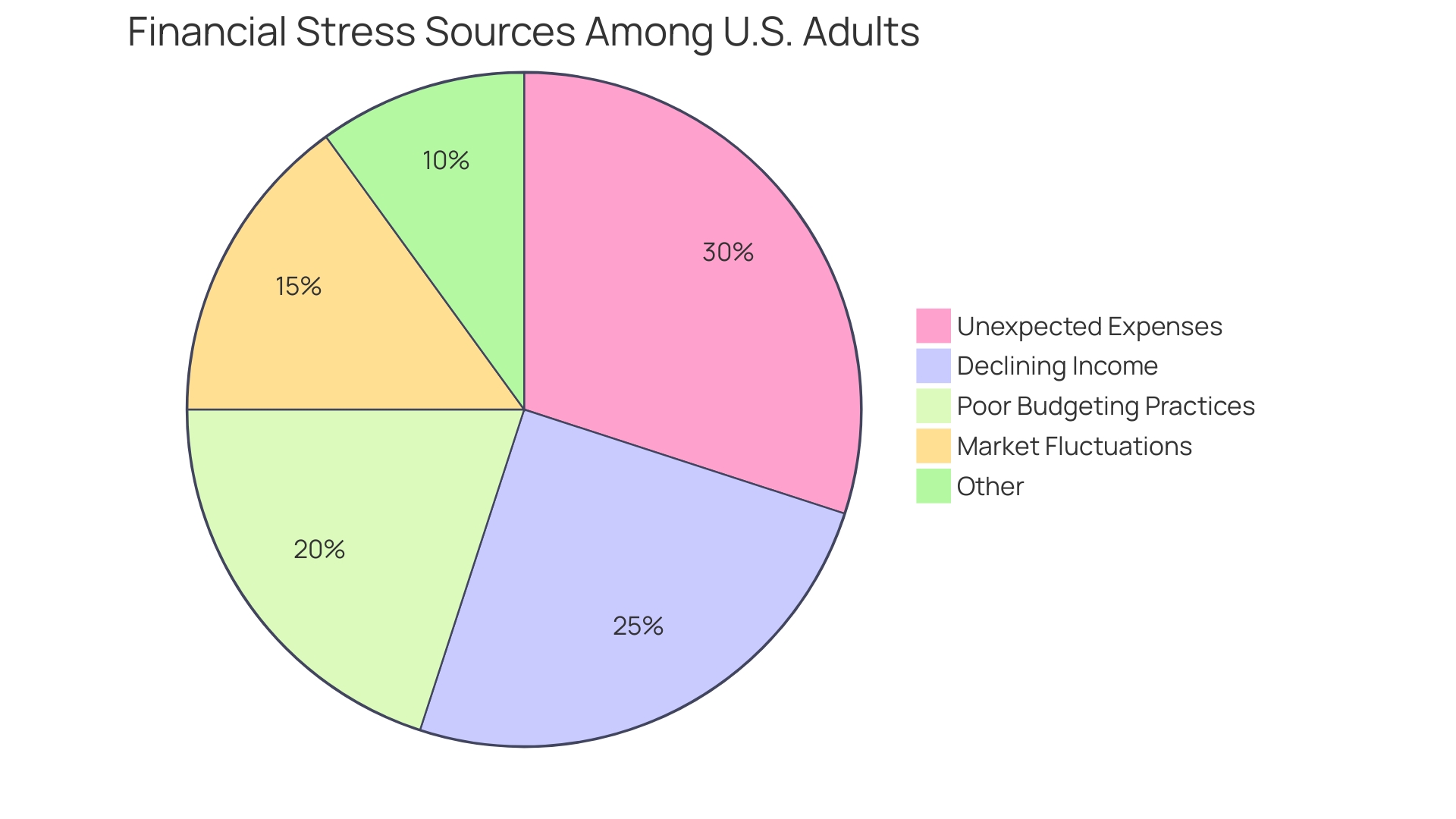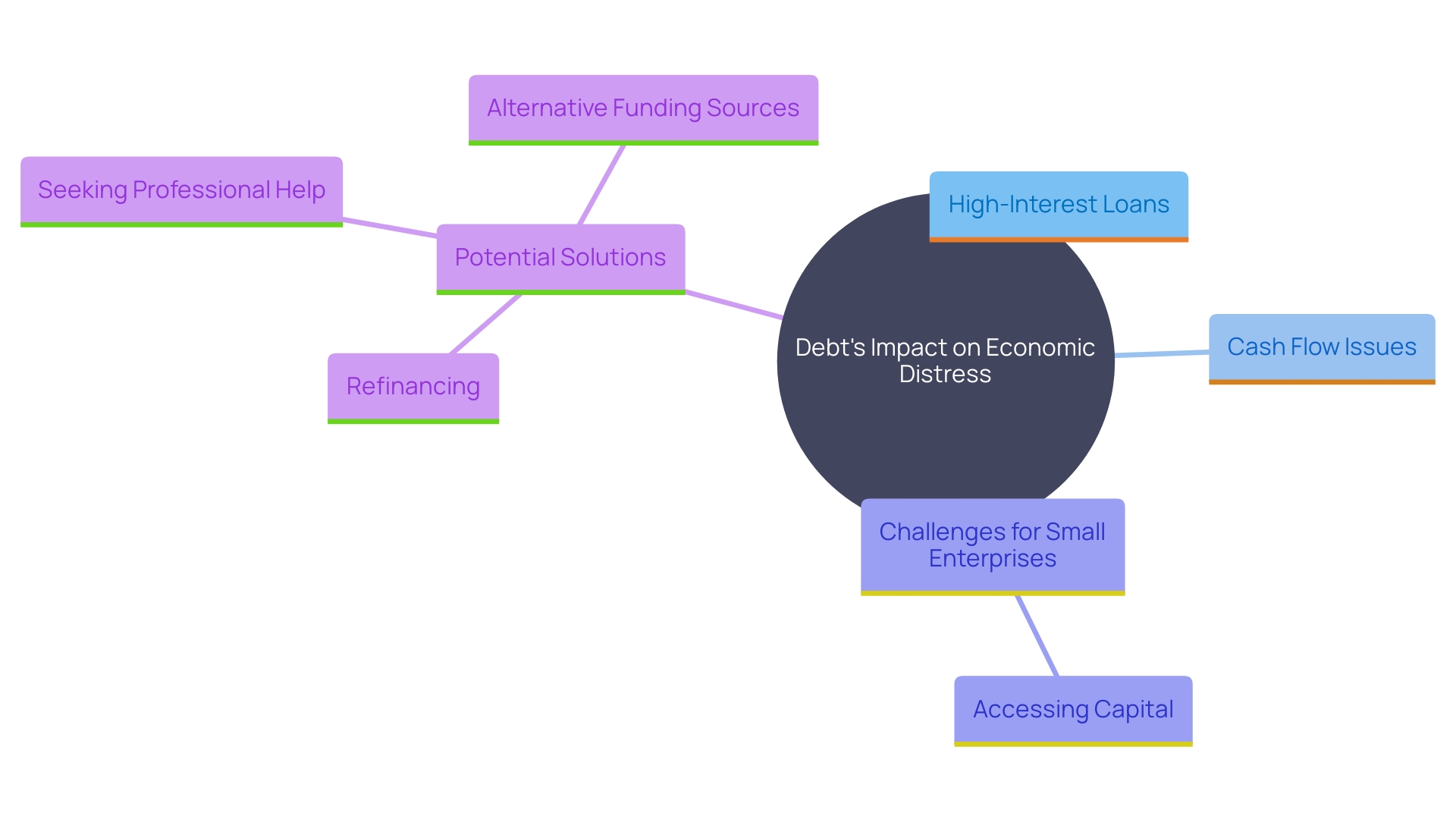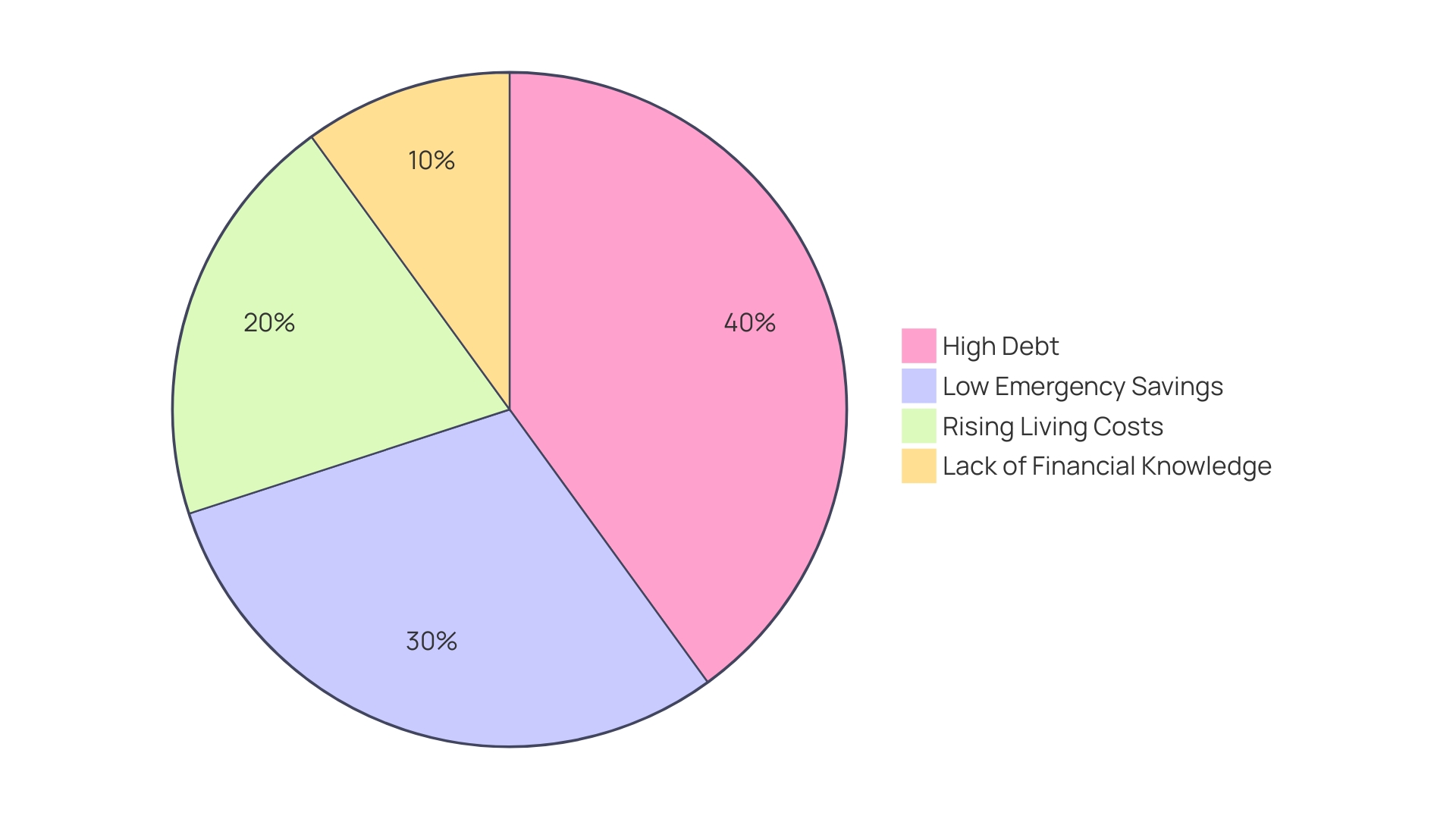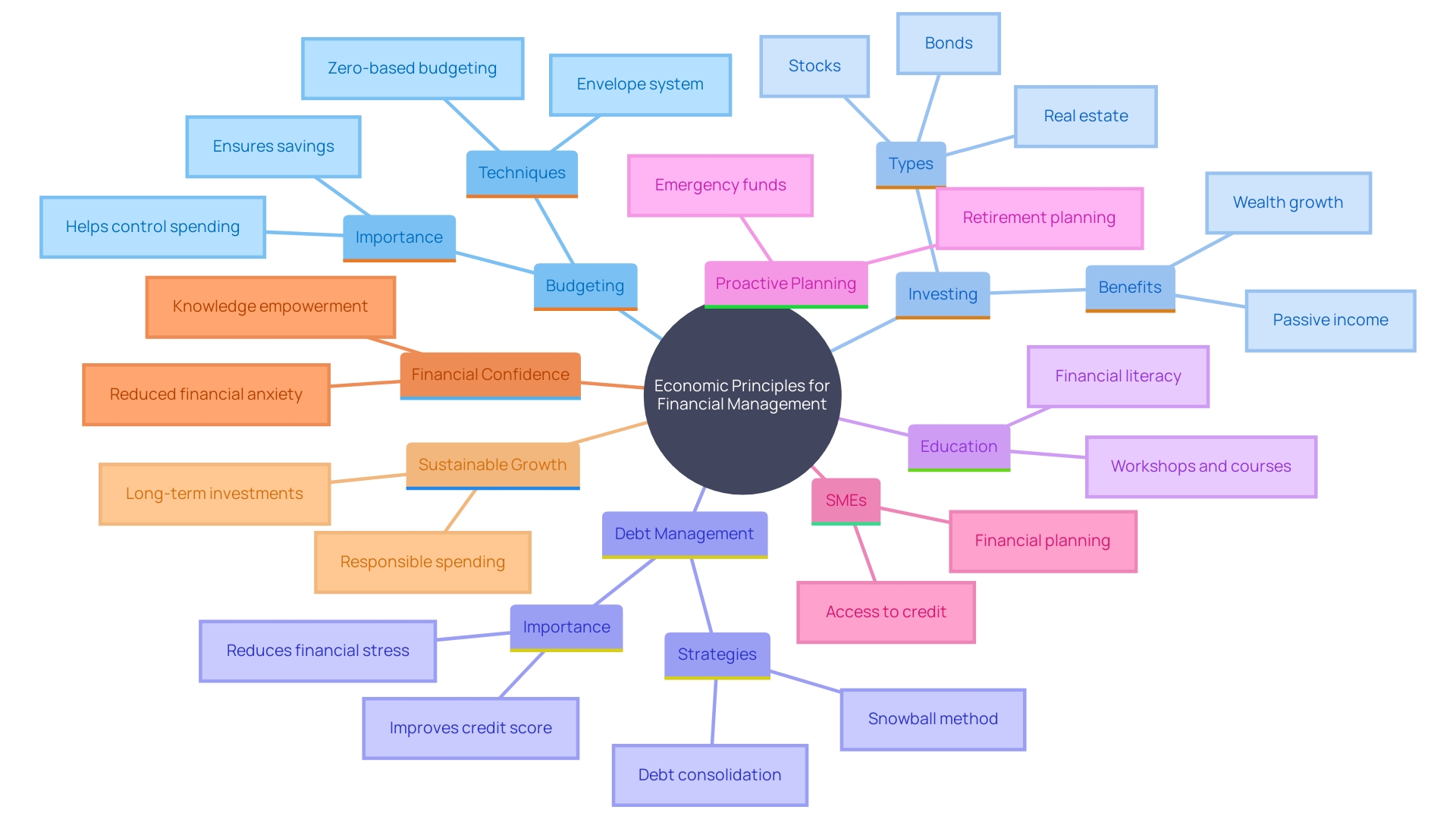Introduction
Financial stress is a pervasive issue impacting individuals and businesses alike. Unexpected expenses, declining income, and inadequate financial planning are just a few of the factors that contribute to this growing concern. The current economic landscape, marked by high inflation and the threat of recession, further exacerbates financial insecurity, leaving many unprepared to handle rising debt and insufficient savings.
Employers have a pivotal role in alleviating this stress by offering unbiased financial resources and tailored support to enhance employee well-being and productivity. Understanding the root causes of financial stress is essential for developing effective strategies to manage and overcome these challenges. This article delves into the multifaceted nature of financial stress, the critical role of debt, its mental health implications, and the importance of financial literacy and planning in fostering financial resilience.
Factors Contributing to Financial Stress
Financial stress stems from numerous sources, including unexpected expenses, declining income, and poor budgeting practices. Market fluctuations and shifts in consumer behavior can exacerbate these issues, putting both individuals and businesses in precarious situations. Insufficient resource management and foresight often exacerbate these issues, resulting in a downward spiral of debt and anxiety.
Recent research highlights the prevalence of economic anxiety among U.S. adults, with nearly 70% reporting they have encountered monetary trauma. Additionally, a 2023 survey revealed that 92% of employees feel stressed about their finances, impacting their mental, social, and physical well-being. This widespread stress highlights the urgent need for enhanced economic education and planning.
The economic landscape further aggravates monetary insecurity. Elevated inflation and the impending chance of a recession have intensified job and economic security worries. 'Despite efforts to concentrate on economic well-being, many employees remain unprepared, facing high levels of borrowing and low emergency savings.'. Notably, a third of Canadians have reported paying more on their debt payments compared to a year ago, with 34% experiencing increased monthly payments due to rising interest rates.
Employers can play a vital role in alleviating monetary pressure by offering access to impartial monetary resources, including economic education, digital planning tools, and certified monetary advisors. By analyzing aggregated employee data, companies can identify specific economic stressors and tailor support measures to meet personalized needs, ultimately improving retention and productivity.
Identifying the underlying factors of monetary pressure is crucial. Poor spending practices and an incomplete understanding of one's monetary situation often lead to debt buildup. As Jesse Hanson, a content manager at Online Solitaire, points out, managing monetary stress begins with acknowledging the problem and its causes. With targeted monetary support and education, both individuals and businesses can navigate their economic challenges more effectively.

The Role of Debt in Financial Hardship
Debt significantly contributes to economic distress, often worsening existing issues. High-interest loans and credit card debt can swiftly accumulate, making it challenging to cover monthly expenses. This financial strain hampers cash flow and limits opportunities for growth investment, perpetuating a cycle of dependency on further borrowing to meet basic needs. Small enterprises, in particular, face hurdles in accessing capital due to their inherent risks and high failure rates. As stated by the Federal Reserve, community banks, which have assets under $10 billion, struggle to provide loans to small enterprises due to these risks. The Fiserv Small Business Index highlights that despite economic shifts, small businesses show resilience. However, the dependence on personal assets and informal funding sources indicates a significant barrier to sustainable economic health. As James Mohs from the University of New Haven emphasizes, knowing when to seek professional help, such as consulting a bankruptcy attorney, is crucial. Exploring options like refinancing, issuing stock, or even considering mergers or sales can provide relief before resorting to bankruptcy.

Mental Health Implications of Financial Stress
Financial difficulties can significantly impact mental health, with anxiety, depression, and stress-related disorders becoming prevalent among those facing instability. A 2023 survey by BrightPlan revealed that 92% of employees are stressed about their finances, affecting their mental, social, and physical well-being. This stress is exacerbated by factors such as high debt and low emergency savings.
The ongoing strain can impair decision-making and reduce productivity, creating a vicious cycle of economic and mental distress. According to Deloitte, analyzing employee data to identify specific economic stressors can help organizations craft targeted support measures, improving both retention and productivity.
Mental health has struggled to gain the recognition it deserves, particularly in the workplace. The pandemic has only intensified these issues, potentially driving cultural change around mental health. Customizing tools and interventions for diverse demographic groups can help employees stay healthy and supported.
The physical toll of chronic stress includes increased risks of digestive issues, heart disease, and stroke, as excessive cortisol impacts the body. Clinical psychologist Rosalind S. Dorlen emphasizes the importance of viewing the mind and body as interconnected. Economic education and planning are essential in easing this burden, as nearly 70% of adults have faced monetary trauma.
In Canada, increasing interest rates and inflation have pushed many into greater economic and mental strain. A third of Canadians now pay more on debt payments than a year ago, with higher stress levels among those with greater income and those aged 35-54. Addressing these mental health implications is vital for achieving overall economic recovery.

The Importance of Financial Literacy and Planning
Economic understanding is essential in preventing and addressing monetary issues. A thorough grasp of economic principles, such as budgeting, investing, and debt management, enables individuals and enterprises to make informed choices. For instance, small and medium-sized enterprises (SMEs), which account for over 90% of businesses globally, significantly contribute to economic growth but often lack essential management skills related to finances. Authorities have put billions into economic education for these businesses to close this gap.
Proactive planning regarding money, including establishing clear objectives and frequently assessing monetary health, can reduce risks linked to poor management of funds and encourage sustainable growth. Nets, a digital payment solutions provider, exemplifies this by transforming complex monetary data into engaging formats to enhance understanding and decision-making. This approach aligns with the goal of promoting a healthy relationship with technology, as seen in initiatives like the Cisco and OECD partnership to build a digital well-being knowledge hub.
Moreover, budgeting provides long-term advantages like preparing for a comfortable retirement and creating generational wealth. This holistic approach ensures that each aspect of personal finances works in harmony to achieve both short-term and long-term goals. Ultimately, financial confidence stems from having a well-structured plan that directs cash flow, investments, and other critical financial areas.

Conclusion
Financial stress is a multifaceted issue that significantly impacts both individuals and organizations. The contributing factors, including unexpected expenses, declining income, and inadequate financial planning, create a cycle of debt and anxiety that can be overwhelming. With nearly 70% of adults experiencing financial trauma and 92% of employees feeling stressed about their finances, the urgency for effective solutions has never been more pronounced.
Debt plays a pivotal role in exacerbating financial difficulties, particularly for small businesses that often struggle to access capital. High-interest loans and credit card debt can hinder cash flow and limit growth opportunities, making it essential for individuals and businesses to seek professional help when necessary. Exploring options like refinancing or considering mergers can provide crucial relief before more drastic measures, such as bankruptcy, are needed.
The mental health implications of financial stress cannot be overlooked. Anxiety and depression are prevalent among those facing financial instability, leading to decreased productivity and impaired decision-making. Organizations that analyze employee data to identify specific financial stressors can create targeted support measures, enhancing overall well-being and retention.
Furthermore, promoting financial literacy and proactive planning is vital for equipping individuals and businesses with the tools needed to navigate financial challenges effectively.
In conclusion, addressing financial stress requires a comprehensive approach that includes education, tailored resources, and strategic planning. By fostering financial literacy and providing access to unbiased resources, employers can play a critical role in enhancing employee well-being and productivity. Taking proactive steps to manage financial health not only reduces stress but also lays the groundwork for a more secure and prosperous future.




